In a word, yes. But, technically this is the wrong question.
The correct question is probably closer to, “What is the impact of the calories I consume on my body’s ability to store fat versus burn fat?”
The immediate follow-up question to some variant of this first question is, “Should I be counting calories?” In a word, no. But you’ll want to read this post fully to qualify that answer.
Before I answer these important questions, let’s spend a few moments reviewing five key concepts.
Key concept #1 – the definition of a calorie
A calorie is a unit of measurement for energy content. By formal definition a calorie is the amount of heat energy required to raise one gram of water from 14.5 to 15.5 degrees Celsius at atmospheric pressure. One-thousand calories is equal to 1 kilocalorie, or 1 kcal for short. Here’s where it gets a bit tricky. Most people use the term “kilocalorie” and “calorie” interchangeably. So when someone says, “a gram of fat has 9 calories,” they actually mean 9 kcals. The important thing to remember is that a calorie (or kcal) tells you how much energy you get by burning the food. Literally. In the “old days” this is how folks figured out the energy content of food using a device called a calorimeter. In fact, to this day this is how caloric content is measured when doing very precise measurements of food intake for rigorous scientific studies. As a general rule carbohydrates contain between 3 and 4 kcal per gram; proteins are about the same; fats contain approximately 9 kcal per gram.
[If you’re wondering why fats contain more heat energy than carbohydrates or proteins, it has to do with the number of high energy bonds they contain. Fats are primarily made up of carbon-hydrogen and carbon-carbon bonds, which have the most stored energy. Carbs and proteins have these bonds also but “dilute” their heat energy with less energy-dense bonds involving oxygen and nitrogen.]
Key concept #2 – thermodynamics primer
It might be a good time, if you haven’t done so recently, to give a quick skim to my previous post, revisit the causality of obesity. In this post I review, among other things, how the First Law of Thermodynamics explains fat accumulation and loss. To reiterate, the First Law of Thermodynamics says that the change in energy of a closed system is equal to the energy entering the system less the energy leaving the system. When we apply this to fat accumulation, it looks like this:
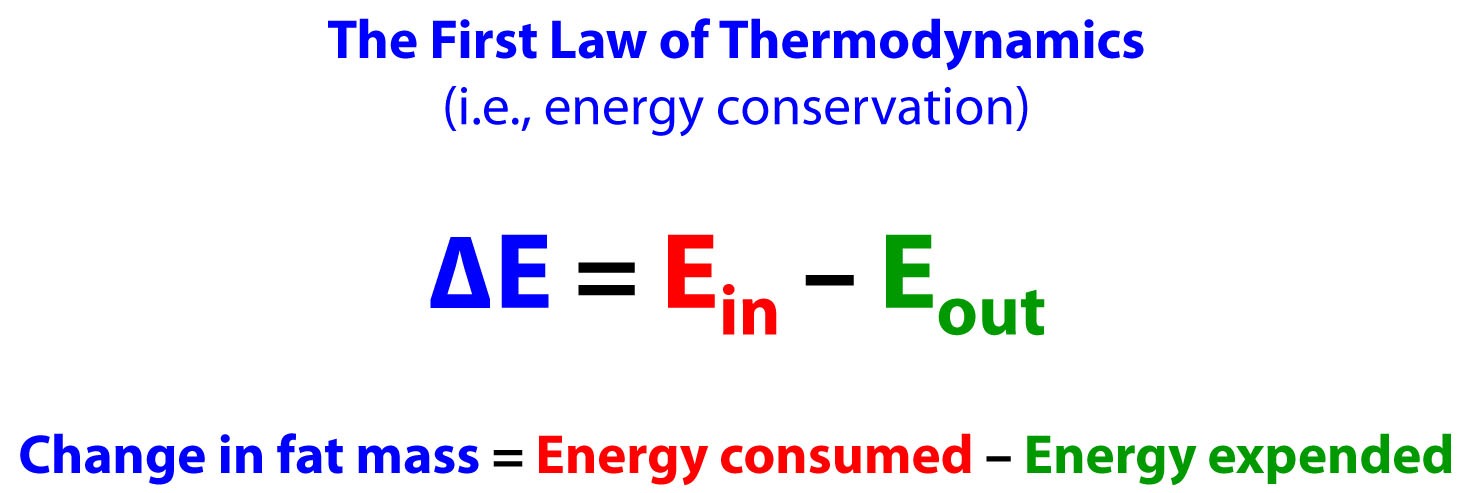
People like me (and others) get a bad rap from folks who lack the patience (or training, perhaps) to actually hear the entire argument through before throwing their hands in the air, waving them frantically, and screaming that we’re violating the First Law of Thermodynamics for asserting the Alternative Hypothesis (more on this below).
Let me be as crystal clear as possible, lest anyone feel the need to accuse me of suggesting the Earth is flat. The First Law of Thermodynamics is not being violated by anything I am about to explain, including the Alternative Hypothesis.
Key concept #3 – current dogma
Conventional wisdom, perhaps better referred to as Current Dogma, says that you gain weight because you eat more than you expend. This is almost true! To be 100% true, it would read: when you gain weight, it is the case that you have necessarily eaten more than you expended. Do you see the difference? It’s subtle but very important — arguably more important than any other sentence I will write. The first statement says over-eating caused you to get fat. The second one says if you got fat, you overate, but the possibility remains that another factor led to you to overeat.
If you believe Current Dogma, of course you’ll believe that “calories count” and that counting them (and minimizing them) is the only way to lose weight.
Key concept #4 – the rub
Most folks — but not all — who subscribe to Current Dogma do so, in part, because they don’t appreciate one very important nuance. In the equation above, explaining the First Law of Thermodynamics, they assume the variables on the right hand of the equal sign are INDEPENDENT variables.
Let me explain the difference between independent and dependent variables for those of you trying to suppress any memories you once had of eigenvectors. As their names suggest, independent variables can change without affecting each other, while the opposite is true for dependent variables. A few examples, however, are worth the time to make this easy to understand.
- The weather and my mood are dependent variables. When the weather goes from gloomy to sunny my mood tends to improve as a result of it, and vice versa (i.e., when the weather goes from sunny to gloomy, my mood goes from good to bad). In this case the dependence is only one-way, though; my mood changing has no impact on the weather.
- My countenance and my interaction with people are dependent variables. When I smile it seems to cause a more positive interaction with the people around me. Similarly, when I’m having a good interaction with someone I tend to smile more. In this case the dependence goes both ways.
- My height (while I was still growing) and my hair length are independent variables. Both of these variables can change without any impact on each other.
How does this tie into the idea of the First Law? Let’s re-write the First Law with a bit more specificity:
The change in our fat mass is equal to what we eat and drink (the only source of energy entering our system) less all of the energy we expend.

Now let’s be even more specific on the “expend” part of the equation. We expend energy in four ways: Digestion (all the energy we require to break down food, plus the undigested portions that leave our body); Exercise (everyone knows what this is, but I tend to separate it from daily activity since people really like to focus on exercise); Daily activity (the non-exercise activity we carry out); Basal expenditure (the energy we expend “underlying” any activity – e.g., when you are resting).
Let me clarify something before going further. There are several ways to enumerate and account for our energy expenditure. I happen to do it this way, but you can do it other ways. The important thing is to make sure that you are collectively exhaustive when doing so (and mutually exclusive if you want to make your life easier – we call this MECE, pronounced “mee-see”).
The First Law is only valid when you consider ALL of the energy entering and leaving the system (i.e., your body).

Back to the independence versus dependence issue for a moment. If you look at the equation above, and believe the red box has no impact on the green box, and vice versa, you are saying that energy input and energy expenditure are independent variables. However, this is not the case, and that is exactly why this problem of energy balance is so vexing. In fact, the figure below is a more accurate representation of what is actually going on (and even this is a gross oversimplification for reasons I will mention shortly).
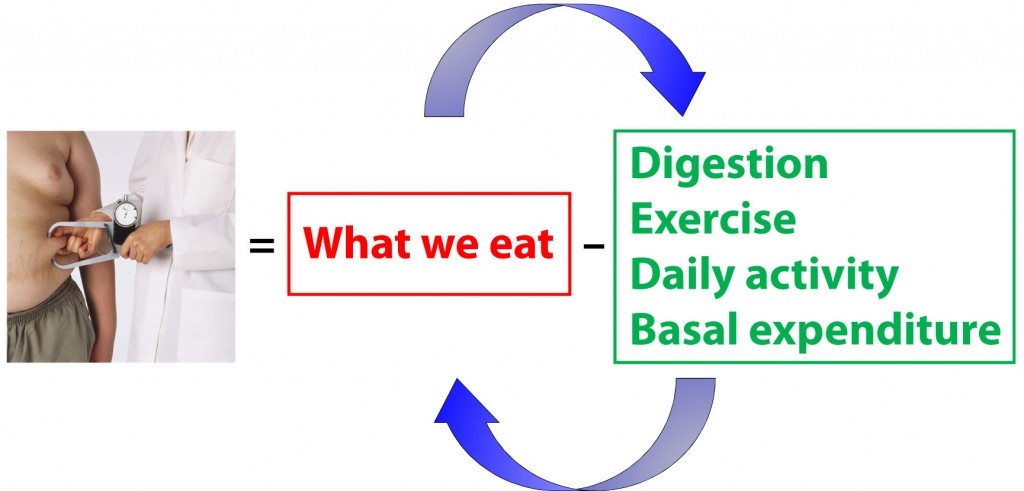
What you eat actually changes how you expend energy. Similarly, how you expend energy changes what (and how) you eat. To be even more nuanced, what you eat further impacts what you subsequently eat. As you increase (or decrease) in size, this impacts how you expend energy.
So there are actually a whole bunch of arrows all over this diagram (I’ve only shown 2: what you eat impacting how you expend, and vice versa. If I included all of the arrows, the diagram would get out of control pretty quickly).
I’m not telling you anything you don’t already know, even though it may sound like it for a moment. When you exercise your appetite rises relative to when you don’t exercise. When you eat a high carb meal you are more likely to eat again sooner compared to when you eat a high fat/protein meal due to less satiety.
Key concept #5 – the Alternative Hypothesis
If, like me, you don’t subscribe to Current Dogma, you’d better at least have an alternative hypothesis for how the world works. Here it is:
Obesity is a growth disorder just like any other growth disorder. Specifically, obesity is a disorder of excess fat accumulation. Fat accumulation is determined not by the balance of calories consumed and expended but by the effect of specific nutrients on the hormonal regulation of fat metabolism. Obesity is a condition where the body prioritizes the storage of fat rather than the utilization of fat.
Why is this different from Current Dogma? Current Dogma says it doesn’t matter what you eat, it only matters how many calories that food contains. If you eat more calories than you expend, you gain weight. The last part is true, but the first part is not. The Alternative Hypothesis says it DOES matter what you eat and for reasons far beyond the stored heat energy in the food (i.e., the number of calories).
Let me use an example to illustrate this. Consider the following table of various substances known to contain a lot of stored energy. The table shows their energy content in units we usually use to describe energy density, kilojoules per gram (middle column), and I’ve converted to units we typically only use for food energy, kcal/g or “calories” per gram, (right column). [Here we need to be very clear to distinguish between a technical calorie and a kilocalorie, which is almost always what we mean.] A kilojoule is about 240 calories (not kilocal), so 1 kj is about 0.24 kcal, and therefore 1 kj/g is about 0.24 kcal/g.
I’ve highlighted, in bold, four rows of things we typically eat: fat (olive oil, to be specific) with about 8.9 kcal/g; ethanol with about 7.0 kcal/g; starch with about 4.1 kcal/g; and protein with about 4.0 kcal/g.
I’ve also included in this table some other substances known to contain chemical energy such as liquid fuels (e.g., gasoline, diesel, jet fuel), coal, and gunpowder. Hard to imagine a world without these chemicals, for sure.
A quick glance of the table, which I’ve ordered from top to bottom in terms of caloric density, would suggest eating olive oil would be more “fattening” than eating starch since it contains more calories per gram, assuming you subscribe to Current Dogma.
But that same logic would also suggest eating coal would be more fattening than starch and gunpowder less fattening than ethanol. Gasoline would be more fattening than jet fuel. Hmmmm. Anyone interested in testing this hypothesis (personally)? Despite my wildest self-experiments, this is one self-experiment I’ll pass on. Why? Well for the same reason you’d pass on it – you know that there are far more important consequences to drinking diesel or snorting gunpowder than their relative energy densities.
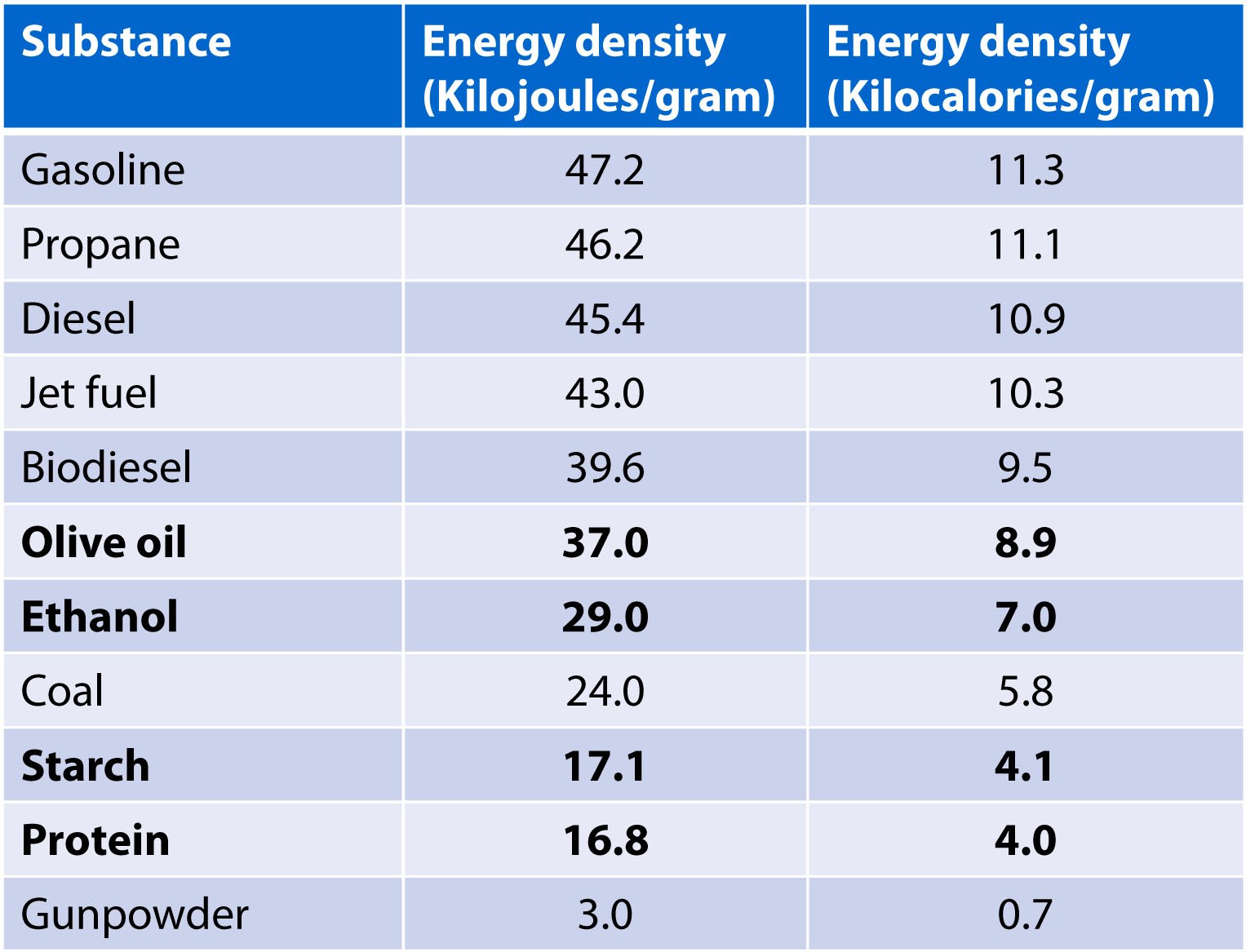
Sure, everything on this list is an organic molecule largely composed of the following four atoms: carbon, hydrogen, oxygen, and nitrogen. Not to bore everyone with a lesson on organic chemistry, but it’s the actual bonds between these atoms that are responsible for their energy densities. When you “liberate” (i.e., break) the bond between an atom of carbon and hydrogen, for example, you release an enormous amount of stored chemical energy. This table tells you exactly how much energy you would release if you were to break the bonds in these molecules, but that’s all it tells you. You can’t actually know, just by looking at this table, if jet fuel is more paraffinic than diesel or if gasoline has more isomerization than propane. And, you certainly have no idea, from the information contained in this table, of exactly how each of these substances will impact the hormones, enzymes, and cell membranes in your body if you ingest them.
Is it relevant to our bodies that olive oil has about the same energy density (i.e., calories) as biodiesel (also known as fatty-acid methyl-ester)? Or, is it more relevant to us that consuming olive oil has a very different effect on our bodies than consuming biodiesel beyond anything to do with the calories contained within them? Obviously consuming equal caloric amounts of olive oil versus biodiesel will have a very different impact on our body. Why then is it so hard to appreciate or accept that equal caloric values of olive oil and rice could also have very different impacts on our body?
The upshot
Let’s get back to the question you actually want to know the answer to. Do calories “matter”, and should you be counting them?
Energy density (calories) of food does matter, for sure, but what matters much more is what that food does in and to our bodies. Will the calories we consume create an environment in our bodies where we want to consume more energy than we expend? Will the calories we consume create an environment in which our bodies prefer to store excess nutrients as fat rather than mobilize fat? These are the choices we make every time we put something in our mouth.
Our bodies are complex and dynamic systems with more feedback loops than even the most elaborate Tianhe-1A computer. This means that two people can eat the exact same things and do the exact same amount of exercise and yet store different amounts of fat. Does it mean they have violated the First Law of Thermodynamics? Of course not.
Similarly, genetically identical twins can eat different macronutrient diets (i.e., differing amounts of fat, protein, carbohydrates) of the same number of calories, while doing a constant amount of exercise, and accumulate different amounts of fat. Does this violate the First Law of Thermodynamics? Nope.
What you eat (along with other factors, like your genetic makeup, of course) impacts how your body partitions and stores fat. In case anyone is wondering how I got over 2,000 words into this post without mentioning the i-word, wonder no longer. Insulin, while not the only factor involved in this process, is probably at the top of the list. When you eat foods that have the double whammy of increasing insulin levels AND increasing your cell’s resistance to insulin, your body prioritizes fat storage over fat utilization. No one disputes that insulin is the most singularly important hormone for causing fat cells to accumulate fat. Somehow the dispute centers on what causes people (full of billions of fat cells) to accumulate fat.
All calories are not created equally: The energy content of food (calories) matters, but it is less important than the metabolic effect of food on our body.
Photo by Aaron Barnaby on Unsplash



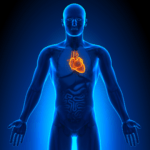
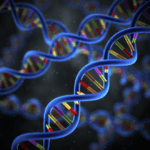
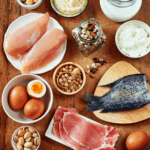
Peter,
Have you thought of perhaps not only providing this type of information to the public (thank you for that!!) but also perhaps developing material for the medical crowd? Perhaps something aimed at the family practitioner? Perhaps even the pediatric practitioner. Maybe give a talk at a conference or two…
I see that you visit Tim Ferriss’ site, and it occurred to me this might be a relatively untapped specialized market.
Even if they didn’t buy in to the insulin-hypothesis, if they realized how little real data backed up the low-fat recommendations, I’d like to think that many would be shocked.
Stay tuned for NuSI…
Hey Peter, I was reading back through comment threads and came across e one where the guy was asking if maybe “heart healthy whole grains” would actually be worse as they keep you out of ketosis for longer and it got me to thinking and questioning things (aside from, “do you actually need to consume carbs immediately post workout to prevent catabolism”, which I think you answered admirably. Anyway, I know that everyone says that protein causes “some” insulin secretion, but do we know how much? I don’t know the chemistry myself but I’m sure that you, or one of your readers, you can do the math to get a ratio, i.e. 4.2 grams of proteins generates the same amount of insulin secretion as the consumption of 1 gram of carbs. The main reason I ask is because I was at the grocery store and they had a special on scallops so I probably just ate about a half of them knowing them to be carb free, but then I look at the label and find that they contain 20 grams of protein, naturally no carbs, but only a gram of fat, so, um, yeah, hopefully the utter I sautéed them in added a sufficient amount of fat 🙂
Chuck, insulin secretion varies a lot by protein and, of course, insulin sensitivity, just as it does with carbs (i.e., all carbs do cause the same insulin response). Don’t worry about an extra 20 gm of protein through some yummy scallops.
Haha, it was more like 75 grams…I had 3 3/4 “servings”, but, ok, if you say don’t worry, I won’t. I was just wondering if there was some kind of formula to be following, but I guess that, until I manage to get myself or do for myself a more individuated prescription, I’ll stick with “1-2gm./kilo of body mass a day”, but I’m definitely going to read up and see if I can’t find some measure to fine tune that.
Thanks again.
-C
Hi, great blog. You inspired me to go all the way with carb restriction after a year of no sugar 🙂
I have this one thing I’m confused about though. I see a lot of people making the assumption that “if I’m in ketosis, my insulin levels must be low”. Is it really always so? It’s my understanding that being in ketosis just means that your glucose levels are low, and body must break down fat to ketones to compensate. Where does the insulin come to the picture?
Yes, low amounts of glucose usually cause insulin levels to drop, but is low insulin a requirement for entering ketosis?
This is a a very good question. Insulin suppresses ketone production, which is WHY you need to have low glucose (and modest protein, which also stimulates insulin) to generate and sustain ketones. So, if someone is in ketosis, it implies (though we don’t often measure it) that their circulating insulin levels are low.
https://www.plosone.org/article/info%3Adoi%2F10.1371%2Fjournal.pone.0031109
I realise that mouse studies don’t add much to the topic, Peter, but have you ever wondered about a possible link between BPA and insulin resistance?
Regards,
Robert I
If a link exists, which is certainly possible, it’s probably a 10th order effect. Why? Because there are many cultures that have never seen BPA that are still full of obesity and IR. I’m dismissive, as you know, of extrapolating anything from mouse to human for the reasons I’ve previously discussed. Like I said, this does not say BPA is “good” or that it doesn’t contribute to the problem, but it’s an edge effect, at best, I suspect.
I’ve read a lot of these comments and they are all very interesting, especially wrt home experiments. I am wayyy too lazy to do my own home experiment, so I am thankful to those who do and report what they have found, even though it is only to a first order approximation. As of late I have been reading about leptin and its relationship to insulin resistance. I am so perplexed! I am a PhD in geochemistry/oceanography, I study all kinds of chemistry, but I am most fascinated and frustrated by my work with the marine nitrogen and carbon cycles. You have to tell the general public that x amount goes into the atmosphere from y sources and they end up in the oceans due to z processes .. but then you have this offset of like a million billion when you do the math, so everyone assumes you are wrong–but in effect you just skipped all of the biological complexities that still never fully mathematically explain the numbers modeled vs. measured. And even a small difference could be due to some genetic adaptation that changes a cycling source to a sinking source. So I am now reading about metabolic processes and the more I read, the less I feel I understand, and the more reading I need to do. And now, after finally completing my phd, I am seriously considering taking the MCAT and going to med school just to learn this stuff better, isn’t that nuts?!
I like complicated systems. I love chemistry. I think that is why I like low carb–I feel like it is a big chemistry experiment using my body as the laboratory. That is why I didn’t have a brownie yesterday when I was at my friend’s house and they were repeatedly shoved into my face.
Samantha, you do NOT NOT NOT NOT need to go to medical school to learn this stuff!!!! Only go to medical school if you want to be a doctor. If anything, medical school will do wonders to help you UN-LEARN this stuff.
I have a question about nuts and omega-3s & 6s, and wasn’t sure where to ask it, so that you’ll include it when you get to that topic. I understand most nuts have a very high 6 – 3 ratio, which we know isn’t good, with the exception of macadamia nuts. I take fish oil – Krill and Cod Liver Oil – but of course I’m wondering which nuts are “best” to eat daily, how many, etc. Would eating 2 – 3 ounces of almonds and walnuts a day skew one’s omega 3 and 6 ratios in an unhealthy direction? Also, what about the acid alkaline aspects of these nuts?
Thanks so much.
Unless you are eating large quantities, this is less of a concern than the actual carbohydrate content of the nuts. The real place to look out for too much n-6 is in plant oils.
Peter, really enjoy the blog. After doing LC off and on for the last few years, I know that is the way I need to eat to lose weight and not be tired all the time. My biggest thing to overcome is regressing and eating carbs as I’ve eaten them for a long time and the LC diet can be somewhat limiting at times. For a long time I felt LC would help lose weight but due to all the naysayers I felt it was unhealthy at some level. After reading Gary’s books I’ve changed that opinion. My wife and I have recently restarted going LC again and I’m convinced to keep on it long term now. One thing I’ve learned on your blog is that you can have too much protein on LC and I’ve been working on changing that going forward. I have one question with regards to fiber. For proper bowel movements I have to take Metamucil every night after dinner. I take the sugar free type, but am concerned that the sweetness of the Metamucil might be kicking me out of Ketosis. Do you have any insight into this? Thanks, Dave
Possible. What if you switch over to mineral oil and bouillon? Does much more for bowel irregularity without the harmful effects of supplemental fiber (lots of evidence this is actually harmful to the colon – I’ll write about this in a while).
I’m peri menopausal at age 48. I’ve been on every eating plan. Nothing seems to work. I just found Gary Taubes articles and have decided to give low carb a try. I’m 5’1″ at now 155 lbs. I notice my weight is in middle of my body. I never had a problem loosing in past. I would love to go below 150lbs. Will eating for fat work for me. Peri menopause and hormone issues seem to be the problem. I’m desperate to get 25lbs off and feel normal not tired and sluggish.
Kim
Great to hear. Keep us posted.
Great blog. One question keeps nagging at me. You read all kinds of material and met with Gary Taubes, but you still didn’t follow the guidelines for the new Atkins diet as far as bonking the first weeks?
Ted, I actually have not read the “new” Atkins.
Peter,
I saw one of the of your comments talking about thyroid issues and low carb dieting, I thought maybe i could help. It would seem there is a considerable amount of people who develop thyroid issues after low carb dieting. I personally had some anomalous thyroid level readings after the first year of low-carb dieting. After coming upon some information in “The Art and science of Low Carbohydrate Living” by Jeff S. Volek, PhD, RD. I think I came across a good hypothesis.
https://jonnybowdenblog.com/salt-and-the-low-carb-diet/
essentially , The amount of carbohydrate restriction increases the need for salts. High carbohydrate diets make the kidneys retain salt, whereas a low carbohydrate intake increases sodium excretion by the kidney. My hypothesis is, with the mainstream media’s horribly generalized mantra of “eat less salt, or you’ll get high blood pressure. Many people decrease their carbohydrate but also end up drastically reducing their intake of salt. much of the low-carb diet information I see, comes attached with many warnings of about the dangers of processed food. Many people including my former self associated salt with processed food. The key to all of this is that iodized-salt intake is the thyroids main source of iodine in most diets, especially those lacking SEAfood (read, not “fish”., tilapia won’t cut it). Iodine is essential for the production of thyroid hormone which is in turn important to the regulation of the endocrine system. So I think a large source of these thyroid issues, are from the body experiencing a large increase in the amount of salt leaving the body and a large decrease in intake of salt and with it iodine balance.
Andrew, yes, I’m very familiar with the salt connection. One of the toughest lessons I learned (personally) on my journey into ketosis was the absolute importance of salt addition. I consume about 6 gm per day. The salt (NaCl) to iodine link makes a lot of sense. I think I still need to do a bit of work to figure out if there is anything else going on, but this is certainly a major issue I don’t thing everyone cutting carbs is aware of. Thanks for pointing out.
Peter: First, let me say that I love your blog. You are a smart fellow who writes well and your self experimentation has given you a well reasoned position on diet. I gather you are saying that your diet will work for some folks, but not everyone. How long does a person need to try a high fat diet to know if it is working for them, and how do they judge that?
Thanks for any insight you can provide. Very sincerely, Bobby
Bobby, thanks for appreciating the art and science of this. My thesis is this: there is virtually no one who will NOT benefit from carbohydrate reduction. The extent to which you restrict is a function of 1) your genes, and 2) your goals.
In my experience, it takes about 12 weeks to really adapt to a significant dietary change, ASSUMING you’re doing it correctly.
So do you have any opinion about whether leptin plays a significant role in obesity or is it primarily just insulin?
Big questions, Dave, and beyond the scope of a quick response. Leptin certainly plays a role, but the overlap with insulin is significant. I will write about this in time.
Hi Gary, I’m a 53 year young Menopausal and facing the Cape Argus cycle, 106 I’m cycle race. Purely do these races for the enjoyment and goal for my gym work. I’ve followed Low cab diet for 7 wks now, lost 7 kg that I had battled to lose over the past 18months so feeling great @ present! Only concern is getting my mind around no carbo loading before race day and then what do I take on the bike?for energy during the ride? Sem to manage 2 hrs training on water but the ride could take me 5 hrs, help will water be enough? Would hate to bale out of the race because of lack of energy…I don’t need to break any records but want o feel good at the end of the race.any suggestions
Julie, I assume you’re asking me (Peter, not Gary)? Stay tuned for tonight’s post. It will address this exact question.
Thank you for this discussion.
My ongoing experience is this: since much of my eating has always been compulsive, rather than hunger-driven (I am always amazed and saddened that what has been learned in Overeaters Anonymous never makes it into general discussions of diet and weight), allowing unrestricted calories even with very very low carbs doesn’t work for me.
While it is true that eliminating carbs–especially sugar–reduces my cravings, I want to make up the carb deficit with more fat and protein: quite simply, I want to eat as much as I always did, just different stuff. I eat compulsively. As a result, in the past, on Atkins, I have lost no weight. I always found that confusing and disheartening.
I am grateful that you, unlike some others in the field, acknowledge that unlimited non-carb eating might be OK for some but not for all. It seems in part to come down to what drives us to eat. If it is simply cellular hunger, then people like you and Gary Taubes, whose work I admire greatly, can rely on your appetites to be your guides. But for compulsive over-eaters like me, conscious control of amount (i.e. calories) is still necessary.
That being said, no, in my experience a calorie is not a calorie, and sugar is not cabbage or hamburger. Thus this low carbohydrate approach, combined with a self-conscious moderation (I do have to count calories) has been what is working for me. I thank you for your support in this endeavor. For me, eating low carb is backed by compelling evidence, but the “eat lo carb and you can eat as much as you want” is a non-starter: my wants are endless. I know I am alone in this regard.
Glad you’re finding this helpful. Thanks for sharing your experience.
Anthony Colpo has been completely DISCREDITED by this article.
Dr. Attia, Dr. Linda Bacon. Dr.Douglas Coleman – all of their SCIENCE articles discredit Colpo abd Richard Nikoley’s recent nonsense.
Calorie labels are off by as much as 80 % !
hi, have you seen this? they put a couple of gorillas on a low carb/low glycemic diet and they lost weight even though they ate more calories than before.
Apes shed pounds while doubling calories, researcher finds
https://www.physorg.com/news/2011-02-apes-pounds-calories.html
quote: “Although they take in twice as many calories on the new diet, after a year, the big boys of the primate house have dropped nearly 65 pounds each and weigh in the range of their wild relatives.”
the study:
Adiposity in Zoo Gorillas (Gorilla Gorilla Gorilla): The Effects Of Diet And Behavior
https://etd.ohiolink.edu/view.cgi?acc_num=case1322582620
(I haven’t read the 100+ pages yet, too busy)
Yes, very interesting. When our cat died of cardiac disease last year we couldn’t help but think we accelerated her demise by feeding her so much junk (mostly carbs).
Can you comment on the following article decrying red meat at The Daily Telegraph? https://www.telegraph.co.uk/health/healthnews/9138230/Red-meat-is-blamed-for-one-in-10-early-deaths.html
I will not comment on this study now, other than to say this is yet another TRAGIC example of how “nutrition science” has run so far amok in this country over the past 50 years. This type of “study” is in a category of junk science known as observational epidemiology. I promise, very soon, I will devote an entire post to this important discussion.
There’s a pretty fair critique of observational epidemiology at https://www.scienceboard.net/community/perspectives.26.html. On the one hand, observational epidemiology stands as the main “proof” of a link between smoking and cancer, but even its practitioners acknowledge its many weaknesses. The new study by Pan et al. did at least make an effort to statistically remove confounding factors related to the fact that people who eat red meat are more likely to also smoke, be sedentary, and be overweight; after removing those factors the associations between red meat consumption, cancer, CVD, and total early mortality still held up. But they’re still just associations and I’m not sure even this study, with its more than 200,000 participants and 2.7 million person-hours, can demonstrate causation.
Guys, if there is no control group (i.e., a group that does EVERYTHING else the same, EXCEPT the treatment) *and* “treatment” (e.g., eating red meat) can’t be prospectively isolated from all other variables, what we have is not called science. At best it’s called correlation.
Okay, but you may want to acknowledge that this is an extreme view, and your definition of “science” would throw out entire fields of inquiry, such as climatology, where controlled experiments are impossible. We couldn’t even prove Newton’s law of gravity until the 1960s when we were able to travel somewhere with no gravity and thus perform the control.
In the field of climate change, which is where I’ve worked for the past 23 years, we only have one Earth, whose climate is affected by many variables, none of which can be controlled for. You can easily demonstrate in a controlled lab experiment that increasing CO2 content of air causes it to warm in the presence of sunlight, but out in the real world the situation is far more complex. Climatologists have been able to use isotopic ratios to demonstrate that the increased concentration of CO2 in the atmosphere comes from burning fossil fuels rather than natural sources, and they’ve been able to use measurements of outgoing radiation at the top of the atmosphere to demonstrate that CO2 is indeed absorbing longwave radiation. And they’ve been able to pull together multiple lines of evidence to show that the Earth’s average temperature is increasing, not only based on data from weather stations, satellites, and balloons, but also from changes in phenology, growing seasons, glacial and sea ice extent, permafrost, and other sources. But because the climate is naturally variable, we can only say that the warming of the past 50 years or so cannot be explained by natural causes as we currently understand them. And because we can’t do a controlled experiment on the climate, we can’t definitively isolate CO2 and other greenhouse gases from the other factors that influence climate. So you won’t see responsible scientists claiming that greenhouse gases are certainly causing the current observed changes in climate: the official line is that they are “very likely” to be the main culprit.
I don’t call that “junk science,” I call it “doing the best we can to understand how the world works given our limitations.” Getting back to observational epidemiology, in most cases we can’t run perfectly controlled experiments on humans because it’s unethical. You can perform experiments on yourself, but you’re a sample size of one. So observational epidemiology can give us clues about relationships, and the more sophisticated ones with large sample sizes (including the Harvard study) can perform sensitivity analyses on different elements of the diet and statistically exclude confounding factors. No it’s not perfect, and no it’s not definitive. But instead of dismissing it as junk science maybe it’s worth trying to figure out if there’s a way to better design these studies so they can arrive at more robust conclusions.
Hi Brad, thanks very much for your thoughts, which make a lot of sense. I don’t know enough about climate science to have (an educated) point of view on the science and limitations, but your assertions seems reasonable — you do the best you can with observation because it’s all you have. Same for Newton and Galileo.
However, I’m not willing to give nutrition-based observational epidemiology such an easy pass. Here’s why:
1. We CAN do better. We can do controlled experiments that isolate variables and prospectively randomize subjects.
2. It is not unethical to do such studies. We have informed consent and IRBs for exactly this reason.
3. I completely agree with your point that obs epi is great for generating hypotheses. That is wonderful. But here is where I find it unethical: these hypotheses get pedaled as “science” by the folks doing the work and the science journalists who report on them.
Brad, it’s this last point that CAN NOT be overemphasized enough. Clearly you are a smart enough person to read a NY Times article about how Harvard has “proved” red meat is bad and know the limitations of the work. But how many people have your luxury? Does the average American? Does the average policy maker? I posit that they do not. In fact, if you look at the dramatic changes in US food-policy from 1972 to 1980 it is clear that virtually all of it was based on flawed science — observational epidemiology — just like this study.
We are gambling with people’s lives because we confuse something that is NOT science with science. Perhaps I’m being too harsh calling it “junk.” I’ll accept that criticism. However, I stand firmly committed to making sure people understand why this sort of work is NOT science, why we CAN do better, and why it is unethical to to continue propagating this information as “science.”
Your talk of “Ingested calories – digestion, exercise, daily activity and basil expenditure” seems like it may be seriously incomplete.
How about waste material? Do urine, feces and sweat have zero calories? I’ve never read anything one way or another but it would seem to me that it’s certainly possible that many people’s bodies simply discard calories they don’t need and that they may discard more, even if calorie intake doesn’t vary, based upon the types of foods they eat.
Has anyone examined this? If not, why the presumption that no calories are just thrown away?
You’ve failed to read the full paragraph… “Digestion” includes waste (i.e., undigested material). Quote:
Now let’s be even more specific on the “expend” part of the equation. We expend energy in four ways: Digestion (all the energy we require to break down food, plus the undigested portions that leave our body); Exercise (everyone knows what this is, but I tend to separate it from daily activity since people really like to focus on exercise); Daily activity (the non-exercise activity we carry out); Basal expenditure (the energy we expend “underlying” any activity – e.g., when you are resting).
Sorry to have missed that phrase, but even that doesn’t explain it enough for me.
How much leaves with waste? Does it vary a lot by person?
Most importantly, do people who are thin but eat reasonably high calorie diets simply excrete more of it, whether their bodies say, “I don’t need this energy so I will discard it.”
If there’s any research on this issue, I haven’t read it and it seems to me (a total layman) the most likely explanation for why some people take in a ton of calories, don’t exercise so much that they obviously burn a ton of calories and yet still stay thin.
Andrew, these four “sinks” vary enormously by person, diet, and (obviously) activity level.
Peter,
Excellent Blog(s), in nk 8 months and have found the whole experience life changing.Just a couple of queries on Sodium:
One can get sodium in different ways, sodium chloride, sodium selenite, is one a better way than an other?
Can you get sodium on its own?
Has chloride (too much) a negative effect on the body?
Any thoughts would be greatly appreciated.
Keep up the excellent work!
Mark
Mark, sodium is available in a number of ways. I prefer sodium chloride, because (I’m oversimplifying a bit) my body needs sodium and chloride in similar amounts. I can’t say, however, that I’m an expert on sodium, so I’ll probably need to spend some time getting buff on the nuances and data surrounding each option.
Showing recent comments and providing a link is a great idea. But I’m finding that the links do not take me to the specific comment, they take me to the beginning of that particular post, leaving me to sort through as many as 173 comments. I hope your webmaster can improve this link function.
I’m working on it, but there does not appear to be a “solution” that fixes every issue. I hope folks can be patient and realize this is just a hobby for me.
John, there is an issue with the comment link. I find that it works sometimes and others it doesn’t. However I just search for the text in the comment using the Ctrl-F or Cmd-F (Macs) in Chrome and it gets me pretty quickly to the one I am looking for.
Keep up the good work Peter, don’t spend too much time fixing bugs in the blog and I for one would much prefer you to be spending your time answering the great questions here with equally great answers.
Thanks
Thanks, Travis. I’m clearly an amateur-hour blogger at this point, but I would prefer to focus the limited time I have to blog on content. Appreciate the understanding.